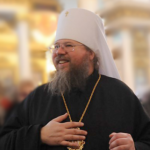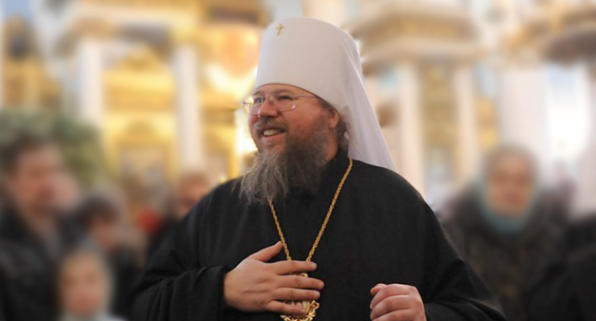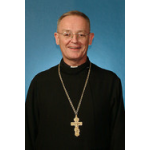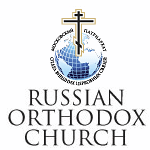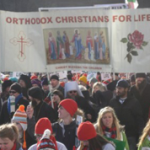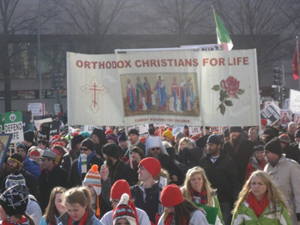
Deprecated: trim(): Passing null to parameter #1 ($string) of type string is deprecated in /home/aoiusa/public_html/wp-content/plugins/sexybookmarks/public.php on line 388
Deprecated: trim(): Passing null to parameter #1 ($string) of type string is deprecated in /home/aoiusa/public_html/wp-content/plugins/sexybookmarks/public.php on line 394
Deprecated: trim(): Passing null to parameter #1 ($string) of type string is deprecated in /home/aoiusa/public_html/wp-content/plugins/sexybookmarks/public.php on line 400
Unbeknownst to most Orthodox, Met. Jonah was the voice of Orthodoxy in the other Christian communions. His words reached into Baptist meetings, Episcopal assemblies, even the Vatican. He traveled these halls effortlessly because he held to the simple teaching of the Gospel but in the fullness of the Orthodox moral tradition. That enabled him to be heard by our non-Orthodox brethren and strengthen them at the same time for he was able to impart a depth and wisdom that many were looking for but had yet to discover.
Met. Jonah’s successes, as well as the genuine fondness and respect shown him by Christians of other communions, shows us that Orthodoxy can speak to the larger culture and that it has some very important things to say. It also shows, as his forced retirement this week makes clear, that the afflictions borne by other other communions afflict us as well.
From the article:
There is another element in this which is of immediate importance, and directly follows on the above. As was written about by Robert Terwilliger, a great Anglican divine of the 20th century, there is a coming realignment within Christianity, one which we can already see the strains of. Whenever schisms happen within the Church, they are generally because certain individuals lead a group out of the Church, being disobedient to the Faith and Doctrine, and refusing to submit to the authority of the hierarchy, which is trying to discipline them and call them to repentance.
What is happening now is somewhat different: a split between those who hold to traditional, biblical faith as interpreted by the Fathers of the Church and the ecumenical councils; and those who espouse a secularized belief, subject to the rationalizations of the scholars according to contemporary philosophy, who dismiss the Fathers and the Councils as no longer relevant, who dismiss the moral teachings of the Scriptures and Fathers as culturally relative. This could be called, by one side, a break between traditional Christianity and post-modern worldly philosophy. Or it might be labeled as the freeing of people from fundamentalist oppression to the light of their own reason.

Source: Catholic Onine | By. Dn. Keith Fournier
There is a radical cultural shift away from traditional Christianity, toward something unrecognizable
I followed with great interest and Christian hope the work of Metropolitan Jonah of the Orthodox Church in America. His passionate stance for the rights of our first neighbors in the womb and efforts to promote alliances between faithful Christians – Orthodox, Catholic, Evangelical and Protestant – have set him apart. His compelling personal faith journey from an Anglican background into the Orthodox Church, by way of the fathers of the Church, is personally inspiring. I am a revert to the Catholic Church and walked a similar road through the apostolic Fathers home to Rome many years ago. Why did he suddenly resign?

WASHINGTON, DC (Catholic Online) – I have followed with great interest and Christian hope the work of Metropolitan Jonah of the Orthodox Church in America. His passionate stance for the rights of our first neighbors in the womb and efforts to promote alliances between faithful Christians – Orthodox, Catholic and Protestant – have set him apart. His compelling personal faith journey from an Anglican background into the Orthodox Church, by way of the fathers of the Church, is personally inspiring. I am a revert to the Catholic Church and walked a similar road through the apostolic Fathers home to Rome many years ago.
Last month the Primate gave an address to the leaders of the Anglican Church in North America, who gathered in Ridgecrest, North Carolina. He showed his prophetic insights into the common struggle which faithful Christians must engage. Here are a few excerpts:
“There is another element in this which is of immediate importance, and directly follows on the above. As was written about by Robert Terwilliger, a great Anglican divine of the 20th century, there is a coming realignment within Christianity, one which we can already see the strains of. Whenever schisms happen within the Church, they are generally because certain individuals lead a group out of the Church, being disobedient to the Faith and Doctrine, and refusing to submit to the authority of the hierarchy, which is trying to discipline them and call them to repentance.”
“What is happening now is somewhat different: a split between those who hold to traditional, biblical faith as interpreted by the Fathers of the Church and the ecumenical councils; and those who espouse a secularized belief, subject to the rationalizations of the scholars according to contemporary philosophy, who dismiss the Fathers and the Councils as no longer relevant, who dismiss the moral teachings of the Scriptures and Fathers as culturally relative. This could be called, by one side, a break between traditional Christianity and post-modern worldly philosophy. Or it might be labeled as the freeing of people from fundamentalist oppression to the light of their own reason.”
“This is not the protestant/catholic divide; it is not the evangelical-charismatic vs. mainline divide. It cuts across all communities in the West, even affecting the Orthodox and Roman Churches in some degree. As Anglicans, you are no strangers to this: it is the reason you are here, and not in TEC. It is creating a massive realignment within Christianity; those who hold to the traditional Scriptural and patristic Faith and discipline of Orthodox Catholicism; and those who reject it, criticize it, and I will add, as you well know, persecute it. You and the ACNA are part of that realignment.”
“There is a radical cultural shift away from traditional Christianity, toward something unrecognizable. The “Secularists” (for lack of a better, non-pejorative term) reject the virgin birth of Christ, the resurrection, even His Divinity; that His words are recorded in the Scriptures and that the Scriptures are even relevant to our days; rather they are oppressive and keep humans in darkness. Another Episcopalian bishop, a certain Mr. Spong, wrote that “Christianity must change or die,” referring to traditional orthodoxy, espousing the radical secularization of the Episcopal Church and all Christianity. It is my prediction that it is not the Orthodox Churches that will die.”
“Solzhenitsyn said that “what the Soviet death camps could not do, Western secularism is doing more effectively. In Russia, 20 million died in the last century as martyrs for the Orthodox Faith, and countless millions of others were thrown in the gulag, for standing up against militant secularism. Many perished because they resisted the Renovationists whose schism distorted the Orthodox Faith. Whether you call it Soviet atheism, or Western secularism, it is the same enemy.”
“Our battle is against secularism. His Holiness, Pope Benedict XVI, has called for us to stand together against this enemy. This is the realignment: to stand together for the faith once delivered by Christ to the Apostles, and thence to the Bishops, without alteration, without change, without revisions; against those who would submit their faith to the current of the age, the wisdom of this world. We must stand together, and we cannot stand alone. Even the immense Roman Church is buffeted by the militant secularists, who defy authority and criticize that which they know not, and we can see in this country how increasingly fragile their unity is.
“Brothers and sisters, we must embrace the Cross of Jesus Christ, the foolishness of the Gospel, the wisdom that is not of this world. We must rejoice in the salvation that God has given us in His Son Jesus Christ, who was crucified for us and rose from the dead. We glory in His Resurrection, and await His Coming Again. We must overcome the divisions that separate us, so that we can stand united in one mind and one heart, confessing that God has come in the flesh to raise us to heaven. We must live according to the moral and ethical commandments of our Lord Jesus Christ enshrined in the Gospel, and reject sin and recognize its corruption.
“This is the orthodox faith of the Fathers, the Ecumenical Councils and the undivided Church. We will have to accept the scorn and derision of those who are of this world, even those who call themselves brethren, being cast out of their synagogues and ridiculed, sued in civil courts, and count all things as worthless that we have lost for the sake of Christ. This, my friends, is our cross. We have to support one another in bearing it. The closer we come, the greater our mutual support will be, and we will not lose heart, or forget that Christ has already won the victory: He has overcome the world. By accepting to go by way of His Cross, we too will share in His Victory.”
Readers of my articles will quickly see why I took such hope in the work of this young Orthodox Metropolitan. You will also see why I am saddened to report that he has resigned his office. Here is the official statement:
Metropolitan Jonah tenders resignation
SYOSSET, NY [OCA]
In a letter addressed to the members of the Holy Synod of Bishops dated Friday, July 6, 2012, His Beatitude, Metropolitan Jonah tendered his resignation as Primate of the Orthodox Church in America. His Beatitude composed and signed the letter at his residence in Washington, DC, in the presence of Archpriest John Jillions, OCA Chancellor. On Saturday, July 7, the letter was presented to the Holy Synod in the course of a conference call in which all of the hierarchs participated, except His Eminence, Archbishop Alejo of Mexico City. The text of His Beatitude’s letter reads as follows.
“To the Holy Synod of the Orthodox Church in America,
“Brothers,
“As per your unanimous request, as conveyed to me by Chancellor Fr. John Jillions, I hereby tender my resignation as Primate of the Orthodox Church in America, and humbly request another Episcopal assignment. I had come to the realization long ago that that I have neither the personality nor the temperament for the position of Primate, a position I never sought nor desired.
“It is my hope that due consideration will be made for my financial situation, both in any interim and in consideration for any future position. I am the main financial support for both my parents and my sister, beyond my own needs.
“I will appreciate your consideration in this, and beg forgiveness for however I have offended you, and for whatever difficulties have arisen from my own inadequacies and mistakes in judgment. Asking your prayers, I remain faithfully yours,
Metropolitan Jonah, Archbishop of Washington
I invite our readers around the globe to pray for Metropolitan Jonah and for the Orthodox Church in America. His letter seems to depict a sadness of spirit. It also raises a number of questions and concerns. I would welcome any further information and insight into this story and what prompted his resignation. I haver reached out to friends in the orthodox Church whom I deeply respect. Sadly, the reports emerging in the blogosphere indicate there may be more behind the former Metropolitan’s decision. For example, former Catholic become Orthodox Christian Rod Dreher opined
“They finally got him. What they don’t understand is that they probably signed the OCA’s death warrant in so doing – not because Jonah was necessarily an exceptional metropolitan (he had his problems as an administrator, and though a very good man, was temperamentally ill-suited for the job), but because the sleazy, corrupt way the Synod has handled this from the beginning shows them to be a pack of ravening wolves.”
Those are very harsh words. Pray for authentic peace for the Orthodox Church in America and pray for Metropolitan Jonah. Finally, pray that his successor continues to stand propehtically and courageously in this age which cries out for authentic collaboration between those who bear the name Christian.
